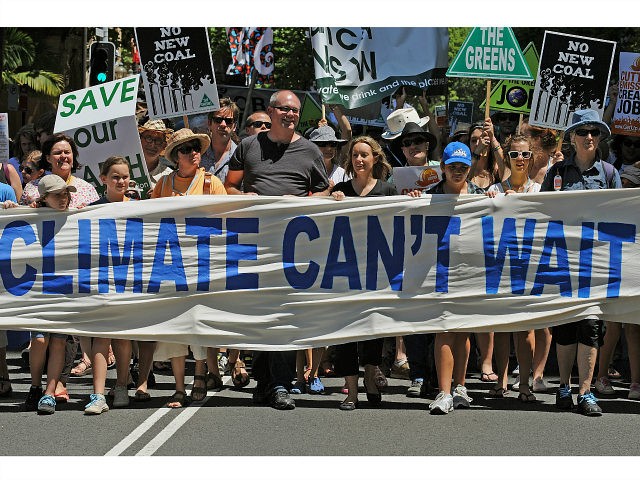The Environmental Protection Agency (EPA) received two petitions from environmental groups to review the agency’s “endangerment finding” that served as the justification for Obama’s climate change agenda.
The Competitive Enterprise Institute (CEI) and the Concerned Household Electricity Consumers Council (CHECC) claimed that the EPA’s 2009 “endangerment finding” should be updated with new evidence invalidating the agency’s previous claim that greenhouse gases threatened public health.
Sam Kazman, CEI’s general counsel, told the Daily Caller that Trump will find it difficult to roll back the EPA’s global warming regulations without invalidating the endangerment finding. Kazman explained, “I think they’re going to have a lot of trouble on the other things they want to get done without addressing the endangerment finding.”
CHECC argued against the endangerment finding, using a 2016 study that “failed to find that the steadily rising atmospheric CO2 concentrations have had a statistically significant impact on any of the 13 critically important temperature time series data analyzed.”
CHECC’s petition stated, “In sum, all three of the lines of evidence relied upon by EPA to attribute warming to human GHG emissions are invalid. The Endangerment Finding itself is therefore invalid and should be reconsidered.”
One line of evidence for the “endangerment finding” was based upon the “tropical hotspot,” where global warming would be most prevalent along the troposphere. CHECC’s 2016 study concluded that the tropical hotspot “simply does not exist.”
The 2016 CHECC authors also found after accounting for natural factors such as tropical storms that “there is no ‘record setting’ warming to be concerned about.”
The EPA’s “endangerment finding” concluded that six greenhouse gases, including carbon emissions, “endanger both the public health and the public welfare of current and future generations.”
The endangerment finding allowed the Obama administration to move forward with its climate agenda, clamping down on carbon emissions from automobiles and power plants.
The EPA then pushed through the “Clean Power Plan” that limits the carbon emissions from new and existing power plants. Twenty-eight states and dozens of businesses and conservative groups sued the EPA to have the CPP overturned. The Supreme Court issued a stay on the CPP in 2016, but federal courts have not ruled on the law’s constitutionality.
Trump signed an executive order in March rolling back Obama’s climate agenda, including reviewing the Clean Power Plan. The executive order also eliminates regulations on fracking.
CEI’s Kazman cheers Trump’s executive order, although he cautions that without eliminating the endangerment finding, the EPA would still be legally obligated to issue climate change regulations. Kazman explained, “Claims like that rest entirely on the endangerment finding.”

COMMENTS
Please let us know if you're having issues with commenting.